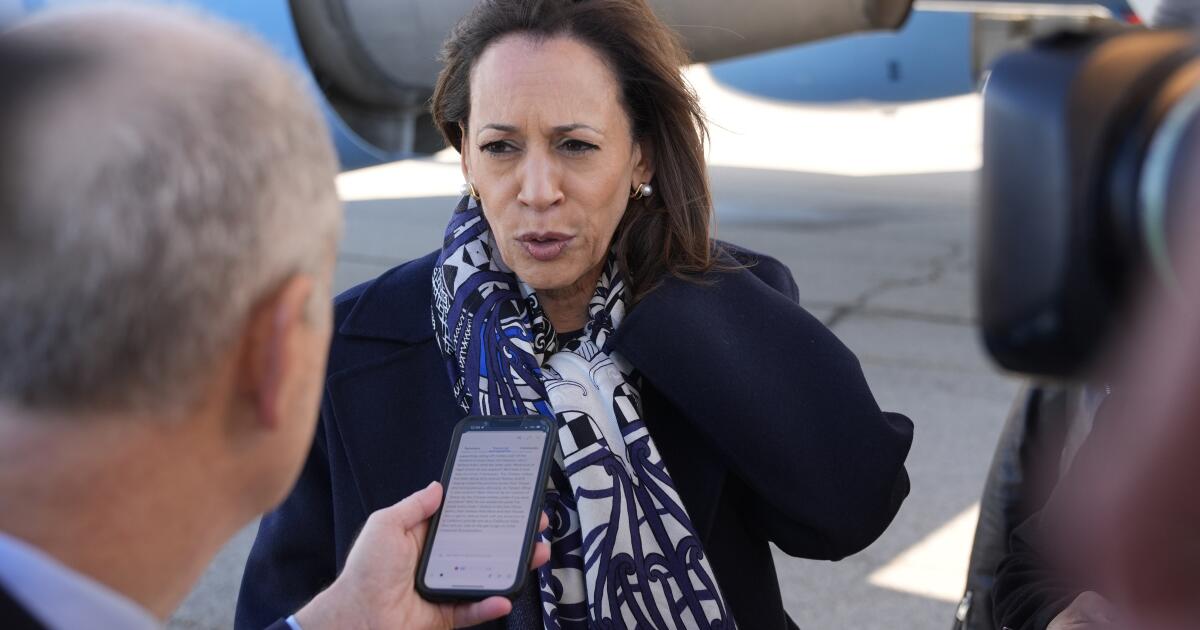Vice President Kamala Harris, who is registered to vote in California, said Wednesday that she still needs to take a look at Proposition 36, a tough-on-crime measure on California’s Nov. 5 ballot that would reverse some progressive criminal justice reforms voters approved a decade ago.
“I’ve not voted yet and I’ve actually not read it yet,” Harris told reporters ahead of a flight from Detroit to New Jersey, in response to a question about Proposition 36. “But I’ll let you know.”
Harris’ campaign has previously declined to answer questions from The Times about how she will vote on Proposition 36. Continued silence from the Democratic presidential nominee, who has touted her record as California’s top law enforcement official, comes as Republicans work to make crime a key point of attack this election season.
At a campaign rally in California over the weekend, former President Trump, the GOP nominee, cast the state as a lawless mess with “the most homelessness, the most crime, the most decay and the most illegal aliens.”
Helmed by a group of prosecutors, and financed by WalMart, In-N-Out Burger and the California Republican Party, among other donors, Proposition 36 would impose harsher sentences for repeat offenses of drug possession and retail theft, and would turn some crimes involving fentanyl and shoplifting from misdemeanors into felonies.
It would also give people who routinely commit drug crimes the option to receive substance abuse treatment, but skeptics have raised questions about how counties would pay for treatment.
The California GOP endorsed Proposition 36 and, according to state campaign finance reports, has spent more than $1 million in favor of the measure. The political committee behind Proposition 36, which has promoted its bipartisan support, donated $1 million to the California Republican Party in recent weeks.
Several polls have found strong voter support for Proposition 36, despite opposition from Gov. Gavin Newsom and Democratic leaders of the state Legislature.
If passed, Proposition 36 would change key parts of Proposition 47, a 2014 ballot measure that was overwhelmingly approved by Californians. As attorney general at the time, Harris did not take a position on Proposition 47. She had decided it would be a conflict of interest to weigh in, a top aide said, because she was in charge of writing the title and ballot summaries that are presented before voters.
Proposition 47 reduced the number of people serving prison sentences for nonviolent theft and drug offenses, and redirected millions of dollars each year into anti-recidivism programs. Instead, Proposition 47 called for misdemeanor charges for individuals who steal merchandise valued under $950 or commit some drug crimes.

